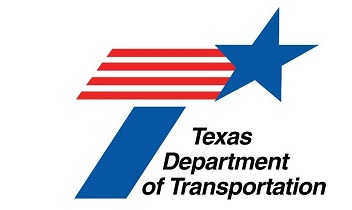
The cell phone video from Easter Sunday shows the convertible Chevy Corvette going 110 mph on Dumas Highway in Amarillo.
“Joey! Chill, bro!” is what the passenger, Dyego Mendoza, shouted over the roaring engine. But it was too late. The car flipped and rolled for several hundred feet before it flew across a highway below, slammed into the side of an overpass and slid down the embankment.
In the video just before the horrific crash, David Elizalde’s 17-year-old daughter, Andrea, can be seen sitting on the center console between the two front seats. She was not wearing a seatbelt.
The crash scene along Dumas Highway was gruesome. Andrea’s Corvette was in pieces, scattered everywhere. The only part of the car that remained intact was flattened.
“We pulled up to a car that was unrecognizable,” said Amarillo Firefighter Brenton Goerend. “You couldn’t tell what it was. It was horrible. We couldn’t find the third person, so we started looking underneath the car.”
Mendoza and the driver survived. Andrea died at the scene, making her one of more than 79,000 people who have died on Texas roads since Nov. 7, 2000.
“It’s not OK to drink and drive,” Elizalde said. “It’s not OK as a father to go through the death of your daughter at the hands of people who are drinking and driving.”
The wreckage of Andrea’s car will provide the backdrop for Elizalde who will be a guest speaker during an #EndTheStreakTX press event in Amarillo on Nov. 16.
Background
This Nov. 7, Texas marks 22 years of daily deaths on our roadways with more than 79,000 innocent lives lost to preventable fatal crashes. For the past several years, about 10 people have died every day in crashes across the state.
For the first time in the agency’s history of analyzing fatal crashes, experts spoke with a psychology professor to dig deeper into the driver behavior. In an interview, Dr. Art Markman from the University of Texas, alluded to an erosion of community that can be a cause for an increase in traffic fatalities.
“We have to remind people that they are part of a community,” Markman said. “We have to start considering everyone as part of our community. If we don’t do that, there are going to be all sorts of negative consequences, and those are going to include negative consequences on the road.”
Texas Transportation Commissioner Laura Ryan, a champion for road safety and TxDOT’s #EndTheStreakTX campaign, said every Texan must do their part. And while the goal of ending the deadly streak is ambitious, Ryan said, it is far from impossible, but we must start to care about others around us.
“With the knowledge that, since the pandemic, people don’t seem to view others around them as part of a community, and, that they care less about those around them, we are starting to identify the problem,” said Ryan. “If we know there is a problem and we can identify that a big part of the problem is a lack of caring or apathy, then we also know the solution – we must care more about those around us.”
Solutions
Drivers have the power to protect themselves, their passengers and fellow community members because most crashes and fatalities are preventable and caused by things such as speeding, drunk driving and distracted driving. That’s why the approach to reaching zero deaths must be through what TxDOT calls the 3 E’s: engineering, education and enforcement. We all have a responsibility to keep our roads and fellow drivers safe.
TxDOT is asking all Texans to do any or all the following to raise awareness:
- Make the best and safest decisions behind the wheel, don’t drive under the influence of alcohol and/or drugs; always obey traffic laws; always wear your seatbelt.
- Post pictures on social media with this downloadable sign displaying the hashtag #EndTheStreakTX.
- Share personal stories on social media of loved ones who have been lost in a crash and use the hashtag #EndTheStreakTX.
- Follow @txdot social media pages and share the content we post.